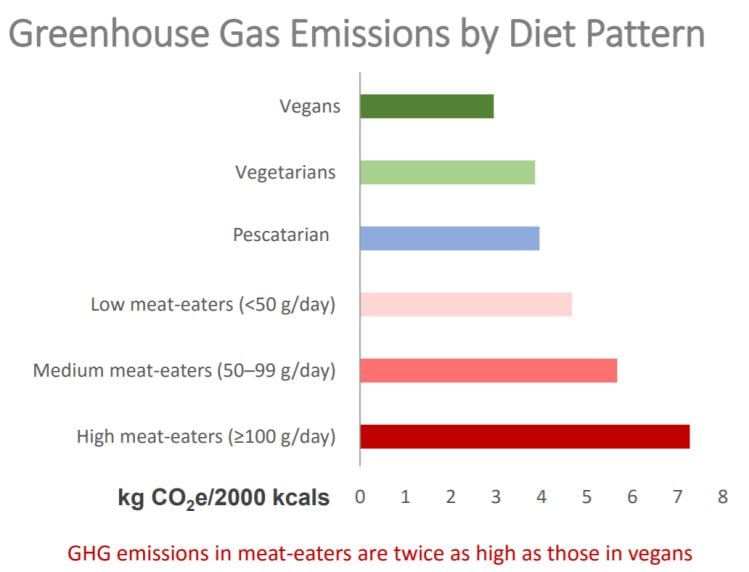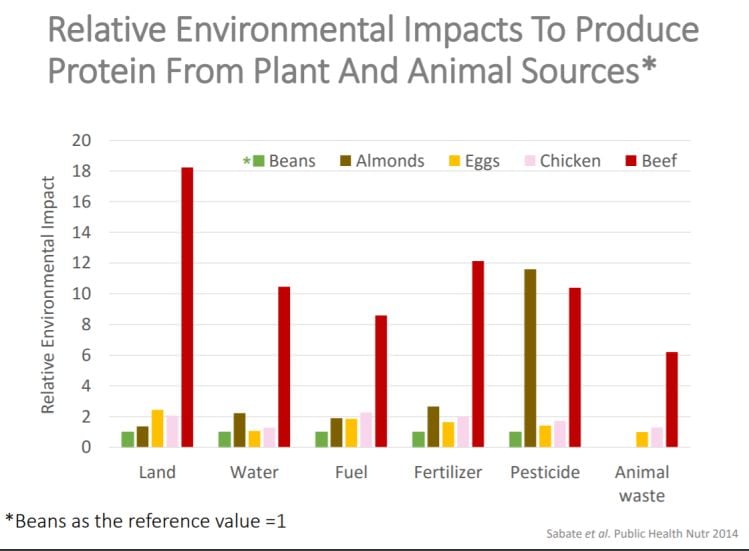Indeed, if we are to have any hope of feeding 9bn people by 2050, there will need to be a radical shift in dietary patterns away from beef in particular, argued successive speakers at the three-day event, which was held at Loma Linda University in California.
“We’re destroying the environment upon which future food production depends,” said congress chair Dr Joan Sabaté, professor in the Department of Nutrition at Loma Linda University. And while improvements in agricultural technology and cutting food waste in the supply chain were critical, a major shift in dietary patterns is also required if we are to feed people sustainably, he insisted.
“Societies must work together to change the perception that red meat – particularly beef - is the mainstay of an affluent and healthy diet.”
The concept of eating meat as the paramount source of protein has become deeply ingrained in the psyche and culture of Western countries
Throughout history, by necessity or by choice, large segments of the world’s population have thrived on plant-based diets, he added, while the nutritional paradigm that we need meat to ensure adequate nutrition intakes has changed* in recent years as data show that vegan and vegetarian diets are associated with better health outcomes.
However, the concept of eating meat as the paramount source of protein has become deeply ingrained in the psyche and culture of Western countries and now pervades many other cultures and nations, he said.
Depending on what statistics you look at, the food system is responsible for between 19% and 29% of global greenhouse gas emissions, the vast majority of which were related to livestock production, he claimed. (The IPPC says 24% of GHG emissions are from agriculture, forestry and other land use, mainly from deforestation and agricultural emissions from livestock, soil and nutrient management.)
Beans for beef
And while consumers sometimes feel that nothing they can do personally will make a meaningful difference, just substituting beans for beef could achieve 46-74% of the reductions needed to meet the 2020 greenhouse gas targets for the US, he claimed, citing a study he co-authored (Harwatt et al) that was published in the journal Climate Change in 2017.
That said, life cycle assessments should be expanded to incorporate a broader range of environmental factors, including water use, water acidification, biodiversity, waste products, and land use, he added, noting that the supply of available farmland, water, fish and fossil fuels is finite.
Citing a paper he co-authored in Public Health Nutrition in 2015 (click HERE), Dr Sabaté said that to produce 1kg of protein from kidney beans requires c.18 times less land, 10 times less water, nine times less fuel, 12 times less fertilizer and 10 times less pesticide in comparison to producing 1kg of protein from beef.
The substitution of beef with beans in meal patterns would therefore significantly reduce consumers' environmental footprint worldwide and should also be encouraged to reduce the prevalence of non-communicable chronic diseases, he added.

Real-world data
While a lot of studies have made assumptions about the environmental benefits of plant-based diets based on theoretical models, researchers at Loma Linda have been able to provide clear evidence of these benefits by analyzing real-world data on dietary patterns from a cohort of 96,000 seventh day Adventists living in the US and Canada, added Sabaté, citing a study published in the American Journal of Clinical Nutrition in 2014 (click HERE).
Analysis of the cohort - which was divided into hardcore vegans, lacto-ovo vegetarians (who eat dairy), pesco vegetarians (who eat fish), semi-vegetarians (who eat some meat), and non-vegetarians - showed that those consuming a vegan diet were responsible for the lowest greenhouse gas (GHG) emissions, followed by the lacto-ovo vegetarians, then pesco-vegetarians and so on, with those on the non-vegetarian diet generating the largest environmental footprint.
This echoed the findings of a 2009 study in the same journal (click HERE) based on a smaller cohort of Seventh Day Adventists in California showing that the non-vegetarian diet required 2.9 times more water, 2.5 times more primary energy, 13 times more fertilizer, and 1.4 times more pesticides than the vegetarian diet, with beef consumption proving the key differentiator, he added.
A more recent systematic review of studies measuring the environmental impacts of shifting current average dietary intake to a variety of proposed sustainable dietary patterns published in PLOS One in 2016 also found that reductions in environmental footprints were generally proportional to the magnitude of animal-based food restriction, he said.
Consumer awareness
As for how to persuade consumers to change their diets, approaches that focus on health are more likely to win people over than lecturing them about greenhouse gases or talking about the global food supply chain, which are not top of mind when you go shopping, said Dr Ruben Sanchez from the University of La Frontera, Chile.
Most consumers, he said, were “hardly aware” of the environmental toll of meat production on the planet, and when asked what they could personally do to reduce their environmental impact, typically referenced things like driving less or recycling, rather than eating less meat.
*Sabaté J. The contribution of vegetarian diets to health and disease: a paradigm shift? Am J Clin Nutr 2003;78(suppl):502S–7S.
** American Institute for Cancer Research; World Cancer Research Fund. Food, nutrition, physical activity and the prevention of cancer: a global perspective. Washington, DC: AICR, 2007. 44. Sinha R, Cross A, Graubard B, Leitzmann M, Schatzkin A. Meat intake and mortality. Arch Intern Med 2009;169:562–71.

